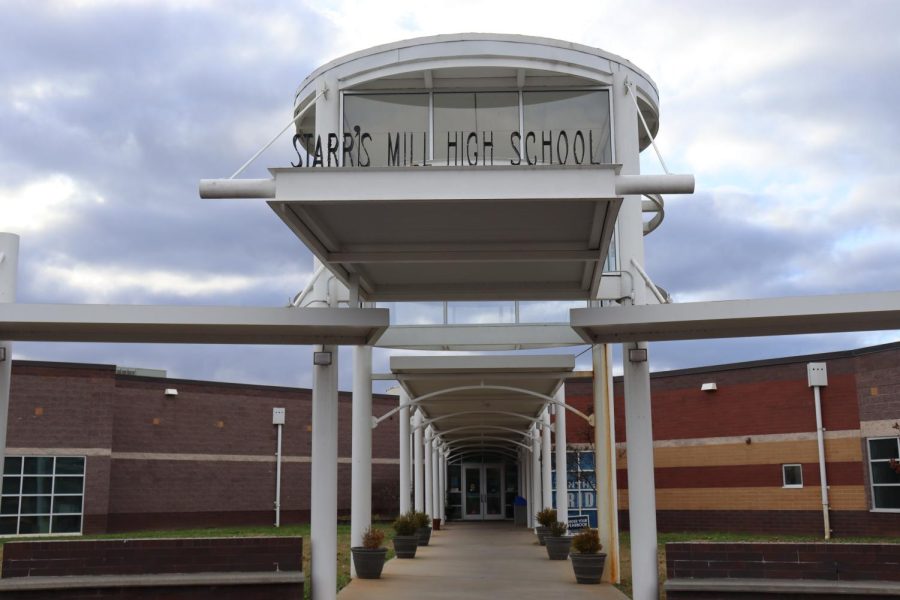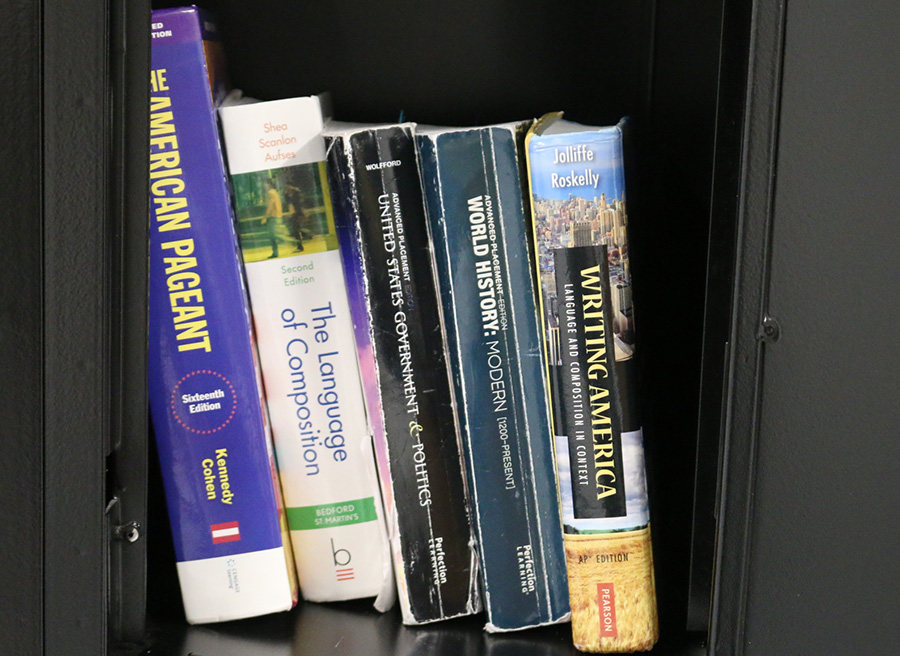No matter what, take the AP
As a student with high goals for myself and my future, taking Advanced Placement classes is an important part of my high school career. For anyone who is debating whether or not to take an AP class, I encourage you to take the AP class.
From my personal experience and the benefits that I have seen that come from taking them, I highly recommend taking AP classes. Students will not regret taking them because of all the plus sides to completing them.
There are many AP classes offered that correlate with interests that students may have. For the musically talented, there’s AP Music Theory. For the technologically savvy, there’s AP Computer Science. These are offered alongside your traditional social studies, science, English, and math AP classes.
Having a rigorous schedule is extremely important when looking into going to schools such as the University of Georgia. Specifically, UGA’s admission statistics show that the middle 50% of admitted students had between 6 and 11 AP, IB, and Dual Enrollment courses. Without the rigor provided by AP classes, the chances of getting into a school like UGA becomes smaller.
These rigorous classes also allow for students with the same high ambitions to be surrounded by one another. Since primarily students with greater work ethic and drive tend to take more AP classes, students do not have to worry about one of their peers dragging the class behind in the material.
For students who like classes that are fast-paced, AP classes provide them with that experience, due to the amount of information that has to be learned by the time they have to take their AP exam. In an AP class, there is no time to get bored of the material or the class itself.
In a majority of the AP classes offered at Starr’s Mill, the class sizes tend to be smaller than in a regular class. This allows for the teachers to get more one-on-one time with each student, allowing for students to better understand the material that is being presented to them.
Additionally, as a student athlete, AP classes have trained me to manage my time more than anything. Without these skills, college will be a wake up call to those who wait until the last minute to finish their assignments.
AP classes have also helped me develop study skills, that I had not been familiar with until I took my first AP course, which was AP Human Geography. Rather than just going through and trying to memorize notes, I had to work on explaining why things happened and I had to ask myself questions about the content as I reread my notes.
With a majority of AP tests being stimulus or application based, rather than just memorizing and regurgitating information, you have to actually thoroughly understand the material to succeed.
Another huge advantage of taking AP classes is the college credit students can earn from taking the classes. Based off of the score students get on the final exam, colleges will take AP classes as a college credit. This will save students money and time in their college experiences.
Due to the AP exams at the end of the year, students in these classes do not have to take a final test in that course that counts toward their final grade. This is an attractive benefit for students who are primarily concerned with their grades and class rankings. Plus, because of this, many students that take multiple AP classes get a headstart on their summer vacation at the end of the school year.
One aspect of AP classes that is extremely rewarding is the input/output ratio. Students can see their hard work pay off through taking APs when they get into the school of their dreams or they get the highest score on the exam. Since AP classes are typically more challenging than regular classes, the feeling of accomplishment after finishing an AP class is great.
Although AP classes are difficult and time consuming, they have many benefits that outweigh the negatives of them. Take the AP and you will not regret it.
Students give APs too much attention
As a student attending Starr’s Mill High School, it is downright impossible to not know what AP classes are. They are the topic of many daily conversations in the classrooms, and the students who take them either brag about how many APs they pile onto themselves or complaining about how they are barely getting sleep because of them.
These glorified classes are seen as absolute necessities — if you don’t take at least four or more AP classes in your high school career, absolutely no college will want you, ruining your chances of a future career.
I want more students to realize just how untrue this is. Yes, AP classes can be recommended by some colleges such as UGA or Tech, but choosing to do Dual Enrollment can get you admitted in schools as prestigious and rigorous as those as well.
Dual Enrollment allows students to actually experience what college classes will be like. AP classes, even though they like to say that they give students a look at what college classes will be like, do not really do that at all.
APs just suffocate students with loads of busywork and push them to memorize as many words that their brain can retain. In addition, most of what they teach is based on preparing them for the final exam, not on showing them what actual college classes will be like.
Medea Walker, a writer for education.com, former AP taker, and current college student, says that the two are completely different settings. AP classes put an immense amount of pressure on things such as note taking, filling out huge packets and reading through large chapters in an incredibly short amount of time.
College classes, Walker reports, are much more lenient learning environments. Yes, there is a much greater workload than that in high school, but it is spaced out and given a reasonable time frame.
There is not multiple pages of homework due nearly every single day, many classes offer more open-ended assignments, and professors certainly do not walk around and dictate exactly how or if the student is taking notes a certain way.
Many schools throughout the nation have already come to the realization that AP classes, as the eight heads of Washington-area Private Schools put it, are “where intellectual curiosity goes to die.” They have decided to completely drop the program in an effort to better their students’ way of learning.
These heads claim that having AP classes only drains students of their passion or interest in subjects due to its superficial manner of teaching and its ridiculous way of covering so many materials in such a short time span, banishing the ability for teachers to actually teach the students in a healthy way.
Scarsdale High School in New York has gotten rid of the AP program and instead introduced Advanced Topics, classes that cover subjects discussed in AP classes, but dig deeper and spend more time covering them. These classes also give students the option of taking the final exam.
Schools would not be getting rid of programs if it meant their students would not get accepted into colleges. This proves that AP classes are not essential to get admitted into universities and that they do not truly prepare students for college work ahead.
Another problem with AP classes is that in order to take one, nearly $100 have to be paid if the student wants a chance at receiving any credit for their full year’s work in that class.
Americans for Educational Testing Reform have not only given College Board, the company that created APs, a “D” rating for “numerous areas of misconduct,” but have also spoken out against the large amount of profit that the Board was gaining from these AP classes. “When a non-profit company is earning those profits, something is wrong,” AETR says.
I want more students to realize that AP classes are not the only way to be a successful student with college class experience in high school. While these classes may be interesting to some students, it may not be the best choice for others, and that needs to be more accepted.

